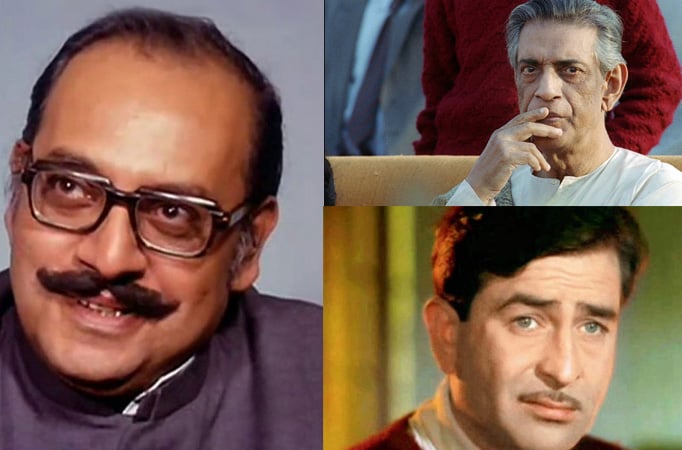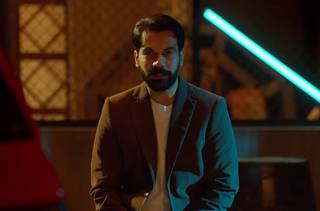
MUMBAI :Portraying the balding, pot-bellied, mustachioed, and regimen-imposing Bhawani Shankar in a brace of Bollywood laugh riots, or ACP Dhurandhar Bhatawadekar or Kailash Pati in more Hrishikesh Mukherjee films are his masterclass in finely calibrated over-the-top comedy. But they are not the only legacy of Utpal Dutt, who was capable of - and displayed - much more versatile acting on both stage and screen.
And this was recognised by his peers. There is a story that once he and Raj Kapoor were at the Calcutta airport in 1973, when a cinema fan went to the latter to get his autograph and was told to approach Dutt first, with the master showman saying that he was only a "star", but Dutt was an actor!
While Dutt's sense of timing, the funny intonation, and the maniacal gleam and laughter he could produce at will, served him well in comedy as "Gol Maal" (1979), "Rang Birangi" - with its slapstick chase through a children's playground, "Kissi Se Na Kehna" (both 1983), "Lakhon Ki Baat" (1984), et al, attest, he could deftly turn the same mannerisms to display a marked unrepentant villainy.
Be it as the leader of the 40 thieves in "Marjina Abdulla" (Bengali, 1973), the crafty munim Ghoshal who drives the hero (Uttam Kumar) to utter despair in "Amanush" (Bengali and Hindi, 1975), as corrupt and venal politicians Dharam Kohli in "Kotwal Sahab" (1977) and Seetaram in "Inquilaab" (1984), or Sahuji, who spins a web of corruption in the entire region, in "Barsaat Ki Ek Raat" (1981), he could present a dark side that also made him one of Bollywood's chilling villains.
All this histrionic capability owe to his through grounding in theatre - where he made a name for himself both as a performer and a playwright - and a firebrand who was also sent behind the bars for sedition!
Born on March 29, 1929 in Barisal (now in Bangladesh), Dutt had a comfortable childhood, first studying at St Edmund School in Shillong and then at St Xavier's Collegiate School in Calcutta, from where he emerged with an honours degree in English. His studies would also fuel his theatre run and also accounted for his impeccable language - as he displayed in several films too, eg with the confrontation with a police inspector (Om Prakash) in "Gol Maal".
From his school days, he ventured into theatre, usually Shakespeare, and it was, incidentally, a performance as the protagonist in "Richard 3" that brought him to the attention of the Kendalls (who would subsequently become Shashi Kapoor's in-laws) and they invited him to join their troupe. He accepted with alacrity and toured around India with them for the next two years.
He subsequently found his own troupe and staged plays of Shakespeare, especially "Othello", as well as those of Henrik Ibsen, George Bernard Shaw, Rabindranath Tagore, Maxim Gorky, and Bertolt Brecht. Along with this, he also worked as a teacher of English in a prominent Calcutta school.
His theatre career got a new direction when in the mid-1950s, the group decided to concentrate on Bengali plays to better reach the people, and soon moved from a dedicated theatre building to out on the streets.
Dutt, a staunch votary of Leftist ideology, was well in the lead, translating and adapting many Shakespearean and modern playwrights' work into Bengali, and then writing his own plays on burning issues of the day, especially "Angar" (1959), on the exploitation of coal miners, and then "Kallol" (1965) on the Royal Indian Navy Mutiny of 1946. It was this, and some related articles, that got him into jail for sedition, though it never came up for trial. Three plays would be subsequently banned during the Emergency.
He went on to write nearly two-dozen plays, including "Aaj ka Shahjahan", which was the inspiration for Amitabh Bachchan's "The Last Lear" (2007). He also wrote studies of Shakespeare, Stanislavsky, Brecht, and revolutionary theatre.
However, it was his role as the cigar-smoking Admiral, who orders shelling of the mutineers, in "Kallol" that prompted K.A. Abbas to offer him the role of the Punjabi ex-serviceman who leads the "Saat Hindustani" (1969) - which would go on to introduce Amitabh Bachchan onscreen.
However, cinema was not new to Dutt, who had been acting in Bengali films since 1950 after debuting in "Michael Madhusudan" (1950) where he played the role of the iconic poet. After nearly a dozen Bengali films, and before his Hindi film stint, he also went on to become part of cross-over Indian stars - playing a maharaja in Merchant-Ivory's "Shakespeare-Wallah" (1965), a rather picky sitar maestro in "The Guru" (1969), and also figured in "Bombay Talkie" (1970).
Dutt came to national prominence with Mrinal Sen's "Bhuvan Shome" (1969), a pioneer of the India "New Wave" and a "quest" movie where the eponymous character he played - a rule-book tyrant - rediscovers his humanity and empathy after a spell in the wilderness. The film fetched him a National Award.
He went on to do scores of Bollywood and Tollywood films for the next two decades and more - ranging from those which became cult classics to those 'masala' kitsch which sank without a trace. Dutt later confessed that he had done most of the films for the money, and forgot the plot and even the movie name after completing his shooting.
While his comic and villain faces have been mentioned, there was one other role he excelled in - as the wise and reasonable elder, whether its Professor Gupta of "Guddi" (1971) where he hits on an innovative way on making the girl understand reel and real life are different, Mr Bhattacharya who ensures a happy ending in "Julie" (1975), and Mr Singh of "Baat Ban Jaaye" (1986), who offers his niece (Zeenat Aman) full latitude in choice of a partner.
His swan song, before he passed away in August 1993 - as for Satyajit Ray - was that masterly tale of vanishing family ties and trust, "Agantuk" (1991), derived from the latter's short story "Athithi". Dutt confessed he treated the role as a "responsibility" since Ray had told him that he had fashioned the character of Manomohan Mitra as a representation of his own personality.
And he kept the faith.
Source-IANS

















Add new comment